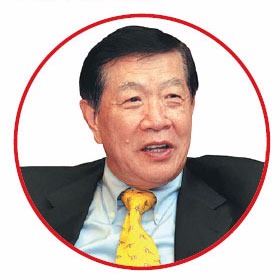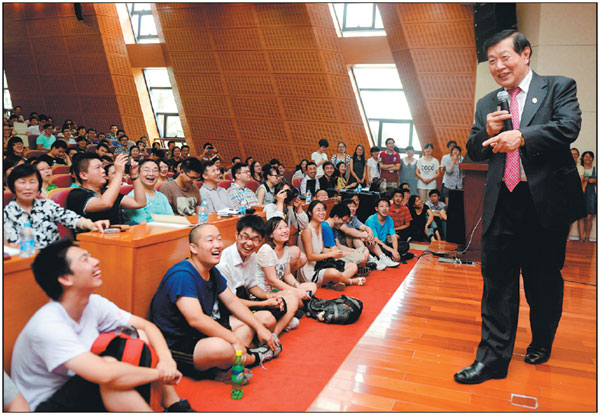
Nov 22, 1938 in Rugao, Jiangsu province
EDUCATION:
? 1959: Graduates from Central Police College, Taiwan
? 1972: BSc in forensic sciences, City University of New York
? 1974: MSc in biochemistry, New York University
? 1975: PhD in biochemistry, NYU
CAREER:
? 1960-65: Officer in the Taipei Police Department, rising to the rank of captain
? 1979-98: Director and chief criminalist, Connecticut State Police Forensic Laboratory
? 1998-2000: Commissioner of the Connecticut Department of Public Safety
? 2001-10: Commissioner emeritus of the Connecticut State Police Forensic Laboratory
? 2006: Establishes the Henry C. Lee Institute of Forensic Science at University of New Haven, Connecticut, where he serves as director of forensic research and training
? September 2013: Accepts consultancy role at China's Procuratorate Technology Information Research Center, part of the Supreme People's Procuratorate
? 2016-present: Chairman of the Silk Road Forensic Consortium
Top forensic scientist finds evidence of great progress

Globally renowned forensic scientist Henry Chang-yu Lee has tipped China to become a world leader in high-tech evidence collection thanks to growing investment in time, energy and talent since the 1980s.
"I believe the technology in China will be more advanced than even in the United States within five years," the Chinese-American expert said in an exclusive interview.
Lee, 80, has more than five decades of experience in forensic science and has taken part in investigations into some of the biggest criminal cases in the United States. Since the 1980s, he has regularly traveled to China to offer his expertise to students, law enforcement, lawyers and judges.
"The apparatus and devices used to identify fingerprints or footprints, for example, were very simple when I first visited Chinese forensic laboratories," he said. Yet as forensic science has developed in the country, he said there have been many advances, particularly in electronic evidence collection and real-time monitoring at banks to prevent fraud.
In 2016, Lee and several other experts established the Silk Road Forensic Consortium in Xi'an, Shaanxi province, to fight crime and safeguard security by boosting scientific exchanges among countries involved in the Belt and Road Initiative.
The consortium, which has 150 members from 30 countries and regions, provides an open platform for forensic specialists, police officers and judges to share ideas and difficulties as well as experiences in DNA identification studies.
Lee, who acts as chairman, said, "Although we speak different languages in our daily lives, we all speak the same 'language' at work, and that's the language of criminal investigation. We share the same goal - to speak for the dead using forensic science."
In September, at the organization's third annual conference in Yantai, Shandong province, Lee announced plans to unify DNA identification standards among its members to try and build a mutual DNA database that can better solve criminal cases.
Unified standards are essential to the world of forensic science, he told China Daily. For example, he said, forensic technicians in different Chinese cities use various chemical reagents, apparatus and reports to identify DNA, which could affect cross-regional cases.
"If we can achieve unification in China, it can be extended across Asia, to the consortium and finally the world," he added. "It would mean a brighter future for forensic science."


